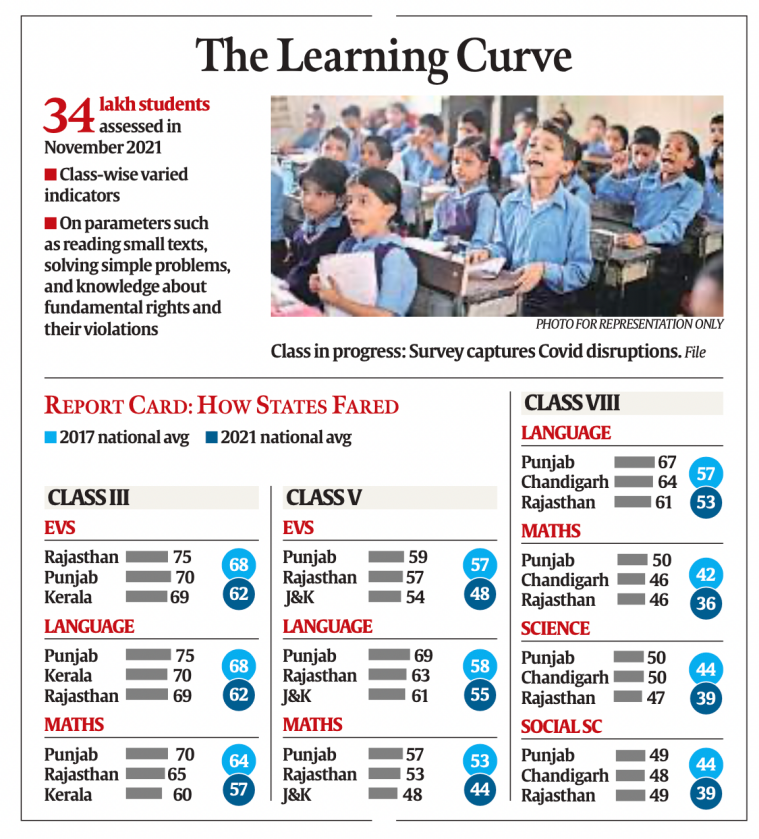National Assessment Survey and its findings
- National Assessment Survey lays out post-Covid challenges.
- Teacher- and student-centred approaches are needed.
Post COVID challenges
- One of the critical challenges is to extend the post-Covid recovery to the classroom.
- India witnessed one of the longest school closures in the world.
- Teachers struggled to cope with pedagogical challenges posed by the switch to online classes.
- Country’s digital divide became hurdle for underprivileged learners.
- Reports have indicated that this disruption resulted in an alarming regression in children’s foundational skills — reading, writing, doing simple mathematics.
The survey
- Study commissioned by Centre - National Assessment Survey (NAS), details magnitude of this learning crisis across the country.
- Conducted in November 2021 among students of more than one lakh schools in 720 districts.
- It shows a sharp dip in the performance of students in almost all subjects during the pandemic years.
- Reveals that breakdown affected even states that traditionally do well on educational parameters.
- Average scores of Delhi’s Class 5th students in mathematics were well below the national average.
The rectification
- NAS data will help states in taking remedial measures, both short-term and long-term.
- First step should be to acknowledge that children are returning to schools with diminished skills as well as recognise that some learners may have experienced more setbacks than their peers.
- Planners and school administrators should give teachers freedom to adopt creative approaches that turn classrooms into spaces where students can shed the anxieties of the past two years and regain skills at their own pace.
Areas of concern
- It requires re-imagining pedagogical practices and a shift from syllabus-centred approaches of the past to learner-centric methods.
- NEP 2020 recognises this imperative.
- Funds for training teachers have been slashed by nearly 50 per cent in the current budget and outlay for Mid-Day Meal Scheme has come down by almost 10 per cent.
- There seems to be an over-reliance on e-learning.
- But as NAS shows, these methods cannot be a substitute for the interactions in a classroom.
Conclusion
- Several studies have underlined that most of the country’s educational system failing stem from the lack of connect b/w lived experiences of most students and what is taught in classrooms.
- The pandemic-induced crisis is an opportunity to apply correctives.
- Failure to do so will imperil academic future of an entire generation.


